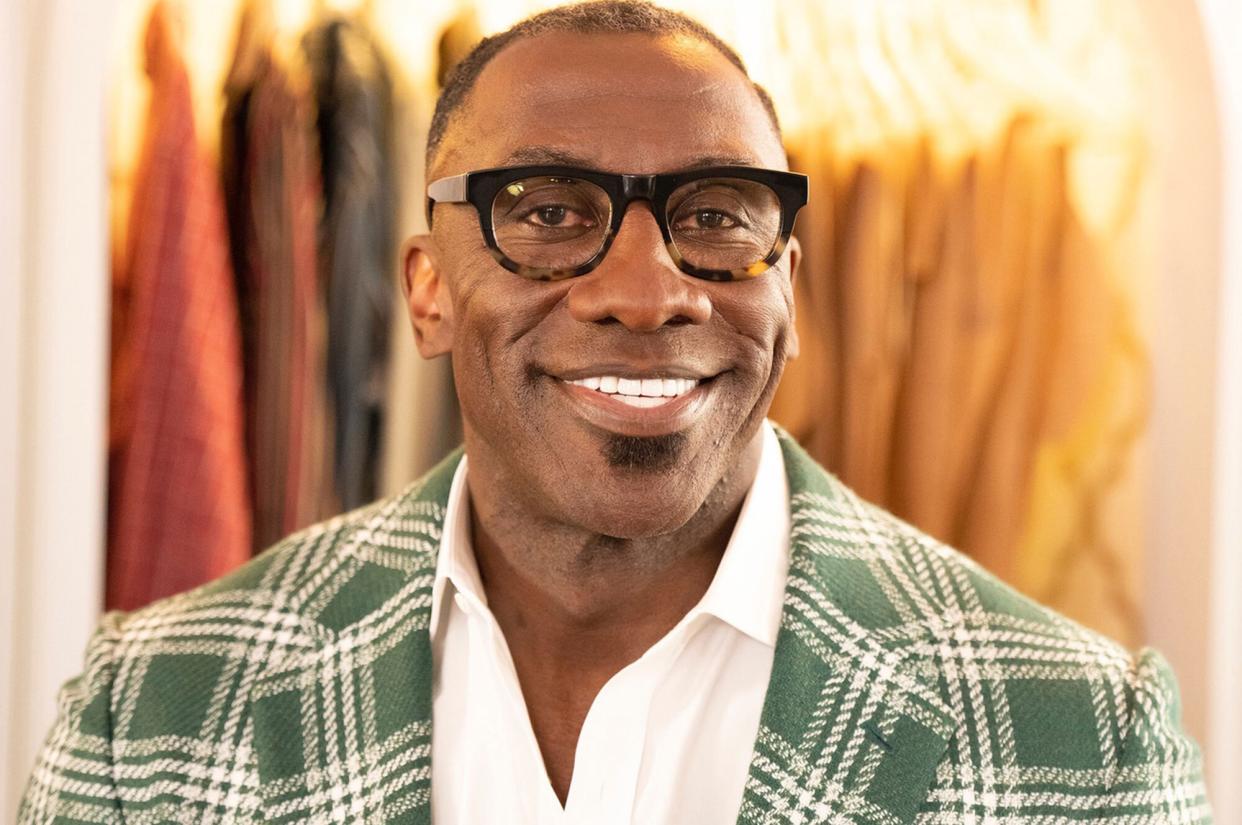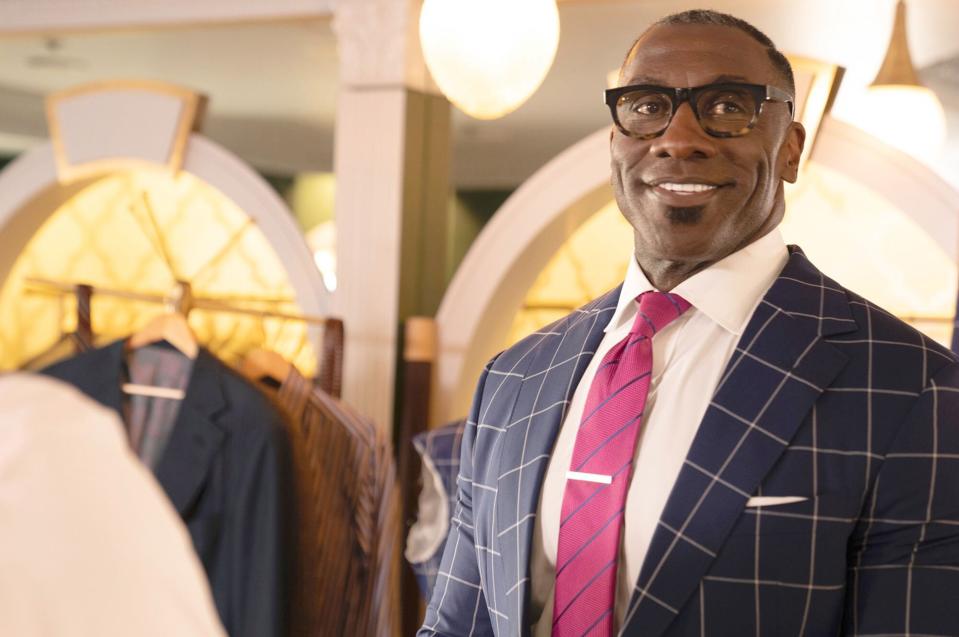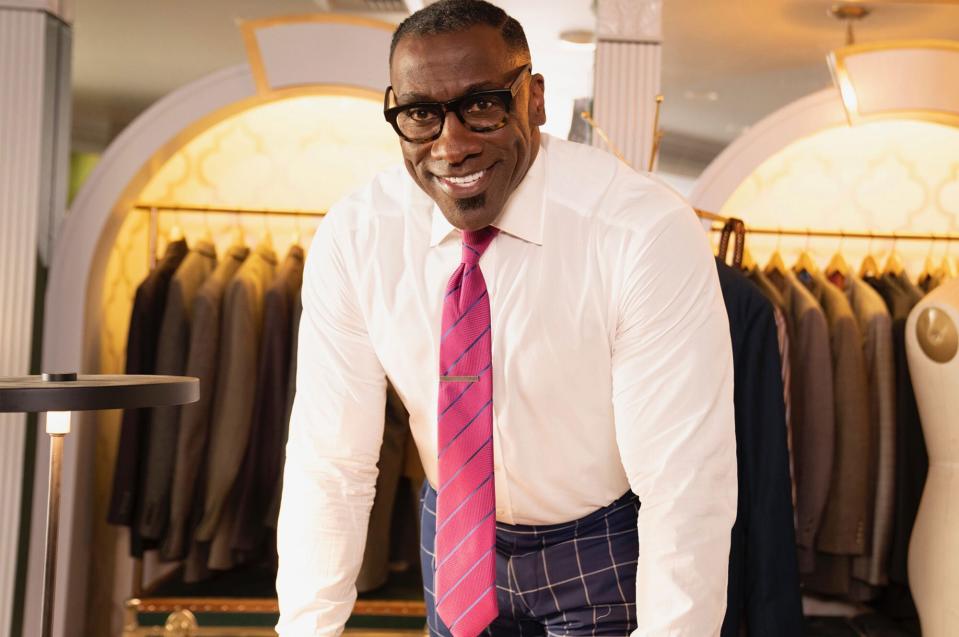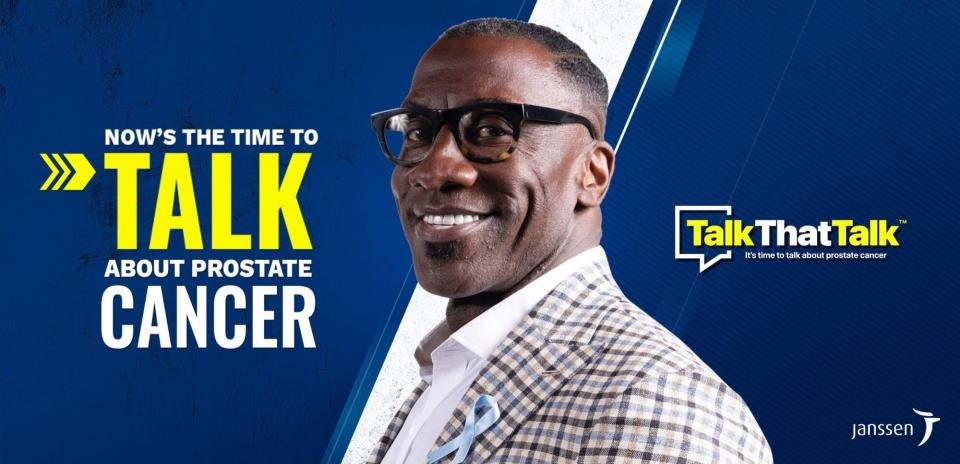Shannon Sharpe Opens Up About His 2016 Prostate Cancer Diagnosis: 'I Didn't Tell Anybody'

- Oops!Something went wrong.Please try again later.
- Oops!Something went wrong.Please try again later.
- Oops!Something went wrong.Please try again later.
Janssen
On a Thursday afternoon in 2016, Shannon Sharpe went in for "a routine" screening that would later reveal the NFL Hall of Famer's prostate cancer diagnosis. Now, the 54-year-old athlete is cancer-free and ready to share his story to raise awareness around prostate cancer.
"Once you hear that 'C' word come out of their mouth, okay, damn," recalls Sharpe, who was diagnosed just one month before he was scheduled to relocate to Los Angeles, where he had just landed a co-hosting gig on FS1 alongside Skip Bayless. "It was difficult..this was my dream job," he tells PEOPLE.
"I had been wanting this job for so long and I had been given an opportunity that Skip believed in me. I was going to be a co-host of a daily debate show that we talked about football, basketball, track and field, golf, tennis, social issues, I was the first athlete to do what I do full-time."
Sharpe and Bayless, 70, co-host FS1's daily show, Undisputed: Skip and Shannon, where the analysts discuss current happenings across the sports world. "I didn't want this opportunity to go away because I wanted to show that athletes could do more than talk about their best sports. I felt that there were a lot of people counting on me to be able to go fulfill this obligation that I had been given."

Janssen
RELATED: WNBA's Kelsey Plum to Meet Her Fan with Cancer After Getting Help from Social Media Followers
Sharpe reveals, "Only four people knew at the time – my brother and sister and my girlfriend at the time. I didn't tell my mom, I didn't tell my kids. I didn't tell anybody." The father-of-three, who "didn't want to worry" his family, says it was "at least a year" before he "felt comfortable enough" to tell them. "The last thing I need you to do is worry about something that you can't control. You worrying is going to make me worry and that wasn't going to help our situation," he explains. "They did after a while. I think they understood that Dad is strong. Dad can do it. Dad does a great job of compartmentalizing. And the thing was, I found out I had just got the job at Undisputed."
Sharpe had been getting screened for prostate cancer since he retired from the league in 2003, mainly because of his family's history. "My dad died at 39. Another brother, he died in his mid forties. And the other died in his late 40s, early 50s. So all that's going through my mind. So absolutely, I'm getting checked out all the time."
But Sharpe says "everything felt fine" when he went in for the screening. "I felt fine. I was exercising, eating right, drinking plenty of water, no really bad habits or anything. I thought it was going to be routine," says Sharpe. "I've fractured my eye socket, broken my collar bone, dislocated my elbow. I tore a rib cartilage, separated both of my shoulders. Those are things you can feel...I felt normal. There was no transformation in my body, I didn't lose weight. There was no pain, no nothing, and if you had just looked at me, I looked like the picture of health."

Janssen
RELATED: Washington Commanders' Brian Robinson Doing Agility Drills 2 Weeks After Being Shot in the Leg
The scariest realization for the three-time Super Bowl champion however, was the possibility of missing out on future generations of his family, like his own father and uncles had. "Like I said, my dad died at 39. He had another brother that died in his mid 40s. Another brother died in his late early 50s. That's direct. That's my dad. That's my two uncles. I mean, he never got a chance to see me and my brother play in the NFL. The only thing I could do is give my son my dad's name and tell him about my dad. I tell him about his granddad or tell him my daughters about their granddad. So they never got an opportunity to sit on my dad's lap, to go to his home and get candies or have him take them somewhere. They never got that opportunity. Well, I wanted that opportunity for my grandkids."
Sharpe, who has two daughters and one son, will become a grandfather in 2023. "I'm going to be a pawpaw!" The future "pawpaw" tells PEOPLE he's excited to give his son "a little dose of his own medicine" as a grandparent. "When you get the kid back, the kid isn't going to be the same as when you brought them to us because I'm probably going to let them do a little bit more than you did. I remember the way you behaved when you were with me," he laughs. "I'm going to let him jump on the bed! I'm going to let him be a kid."
Now, Sharpe is partnering with Janssen Oncology's Talk That Talk to to help start the conversation about prostate cancer screening that will help to eradicate health inequity in prostate cancer.

Janssen
Never miss a story — sign up for PEOPLE's free daily newsletter to stay up-to-date on the best of what PEOPLE has to offer, from juicy celebrity news to compelling human interest stories.
His own experience opened Sharpe's eyes to an alarming statistic showing the disparities between cancer diagnoses among different races. "At the time, when you get diagnosed with something, the last thing on your mind that Black men are two times more likely to be diagnosed with prostate cancer. At that time, I didn't know if it was two times, five times, six times."
"What I want to do now is break down the stigma – do not be afraid to go to the doctor," says Sharpe. "We need to give Black people more access to healthcare, and then once we get better access to healthcare, don't be afraid to go use it. Do not be afraid to just ask questions of your doctor. Do not be afraid to get screened because it could save your life. Now they mentioned there's a 96% survival rate if you get screened and it gets detected early. I'm a part of that 96%. See, I can speak this. I'm not a paid actor. I lived this. I've been there. I can tell you that this could save your life. Saved my life. I'm living proof."
Now that he's looking forward to spending time with his grandson, Sharpe says, "At the end of the day, really all I have now is my health. It's the most important commodity that I possess."

